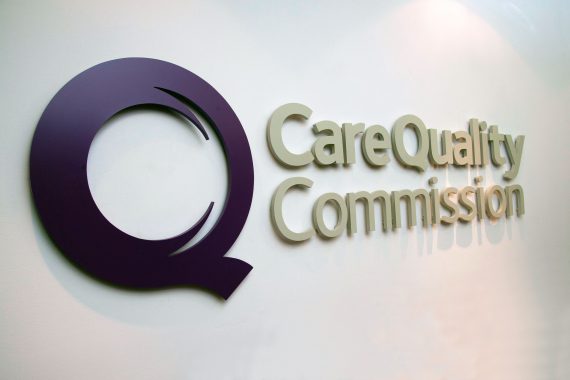The GPC has voiced ‘significant objections’ to the CQC’s new process for calling out GP practices on questionable safety performance.
The CQC is imminently planning to replace its current ‘intelligent monitoring’ process with its so-called ‘GP Insight’ process – with GPs due to get sight of a report on their practice next month.
But the GPC said the new monitoring system, which will see the CQC produce an ‘insight report’ for each practice, using metrics such as prescribing data and patient reviews, risked being misinterpreted by patients and the media and could act as an ‘informal QOF’ at a time when this type of workload has been deliberately scaled back.
In a letter to chief inspector of general practice Professor Steve Field, GPC chair Dr Chaand Nagpaul said it was clear that despite recent meetings, the GPC’s concerns had not been addressed.
Dr Nagpaul’s letter raises several concerns about the GP Insight process, particularly that while the reports formed as part of this will not constitute ‘regulatory judgements on performance’, they will be interpreted as such by practices ‘and more importantly by patients and the wider media’.
The letter also raises concerns about the provision of context about the data, the use of z-scores meaning that half of practices will be below average, giving ‘a skewed impression of the achievement by the profession’, and that these measures ‘are likely to represent a form of informal QOF’, when that process is being ‘scaled back by common consent’.
Dr Nagpaul goes on to urge Professor Field to ‘halt any plans to distribute GP Insight reports to practices in their current form and ask that you reconsider the overall approach to the use and publication of general practice data that can so easily be misinterpreted’.
The CQC told Pulse that GP practices can expect to receive their individual practice reports next month, and will get a chance to verify data before the report is published.
Professor Field said: ‘In our strategy for the next four years CQC has committed to provide a more targeted, responsive and collaborative approach to regulation, so that more people get high quality care at the same time as reducing the burden on providers.
‘One of our priorities is a greater use of data to determine changes in quality and to help guide our regulatory approach. GP Insight does not determine the judgement we make of a practice’s quality, it is there to inform it.
‘As part of this approach, we will produce an individual Insight report on each GP practice, which brings together existing national data in one place. We are planning to send the individual reports out to GP practices next month to allow them to verify the data before it is published.’
Professor Field added that the CQC has been ‘working closely with the BMA and RCGP about our approach to this new model and we will continue to talk to GPs about this process’.
CQC’s ‘intelligent monitoring’ of GP practices
Speaking in December, Ruth Rankine, the deputy chief inspector of general practice, said GP Insight programme will allow the CQC to inspect practices only when they have concerns and may result in a phone call rather than an inspection.
The GPC’s letter comes as the GPC was forced to call on CQC to withdraw misleading GP practice data from the CQC website back in 2014, when its intelligent monitoring scheme was first launched.
At the time, GPs found themselves battling to preserve the trust of their patients after the CQC published its internal risk rating scores for practices across the country.

















